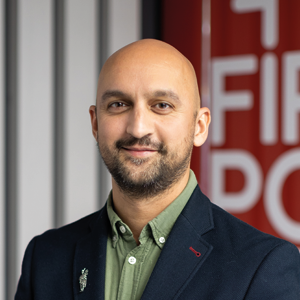
Nothing is more frustrating for a Hiring Manager than hearing a recruitment consultant say, “I’m sorry, the candidate has pulled out of the process. They’ve been offered elsewhere.”
There can be many reasons for organizations missing out on the best candidates. However, a common reason candidates cite is the interview process being too long. At First Point Group, we have even once heard of an interview process consisting of nine stages…nine! When the recruitment was questioned how they persevered with the process, they said, “I really liked the company, and by being part of the talent acquisition team, I’m in a position to help reduce the number of stages during the interview process, so no one has to do this again.”
As a telecommunications and technology recruitment agency, one of the many benefits we enjoy is being able to observe how different organizations conduct their interview processes, especially when it comes to organizations in the same industry. While we would never tell a candidate to choose one firm over another, our recruitment consultants provide honest advice about the typical length of time an interview process takes, based on our two decades of experience working with clients.
So, here several pieces of advice for organisations to avoid missing out on the best talent:
Clear Role Definition: Before approaching any candidates, consider the following:
- Have you clearly defined the role before you hire?
- What will be the number of stages during the hiring process?
- Who needs to be involved?
Consolidate Stages: Where possible, consolidate interview stages. For example, consider whether a candidate needs separate calls with three Directors. Why not try having one call with three Directors? This approach saves time for everyone involved, especially the candidate.
Limit Stages: Do not have more than three stages unless absolutely necessary. The longer your process, the higher the chance that your ideal candidate will be poached by someone else.
Factoring in these simple considerations can save you time, money, and ultimately help you secure the perfect candidate. It's worth remembering that with the number of telecoms and tech jobs in the market at the moment, candidates have more choice. Therefore, organisations need to show flexibility either in setting expectations or in the length of the interview process.
In today's competitive job market, attracting and retaining top talent is crucial. An efficient and streamlined interview process can make all the difference. Lengthy and convoluted hiring procedures not only frustrate candidates but also increase the risk of losing them to competitors who move faster.
By clearly defining the role and the interview process from the outset, you set a strong foundation for successful recruitment. Knowing who needs to be involved and what each stage entails helps avoid unnecessary delays and miscommunications. It also enables candidates to better prepare for each step of the process, making the experience more positive and efficient for all parties.
Consolidating interview stages is another strategy that can significantly reduce the time it takes to fill a position. Rather than subjecting a candidate to multiple separate interviews with various team members, consider conducting panel interviews where relevant. This not only saves time but also allows candidates to interact with all decision-makers at once, streamlining the evaluation process.
Additionally, limiting the number of interview stages to a maximum of three, unless absolutely necessary, is advisable. Prolonged interview processes can deter top candidates, as they may receive other offers while waiting for a decision. In today's fast-paced job market, losing a promising candidate to a competitor due to a lengthy hiring process is a risk organizations can ill afford.
In conclusion, organisations must adapt to the changing dynamics of the job market and prioritise efficiency in their recruitment processes. By taking the time to define roles, consolidate stages, and limit the number of interview rounds, they can enhance their ability to attract and secure the best talent available. In a world where candidates have more choices than ever, the agility to make timely hiring decisions can be a key differentiator in securing top-notch employees.

 Asia
Asia
 France
France


